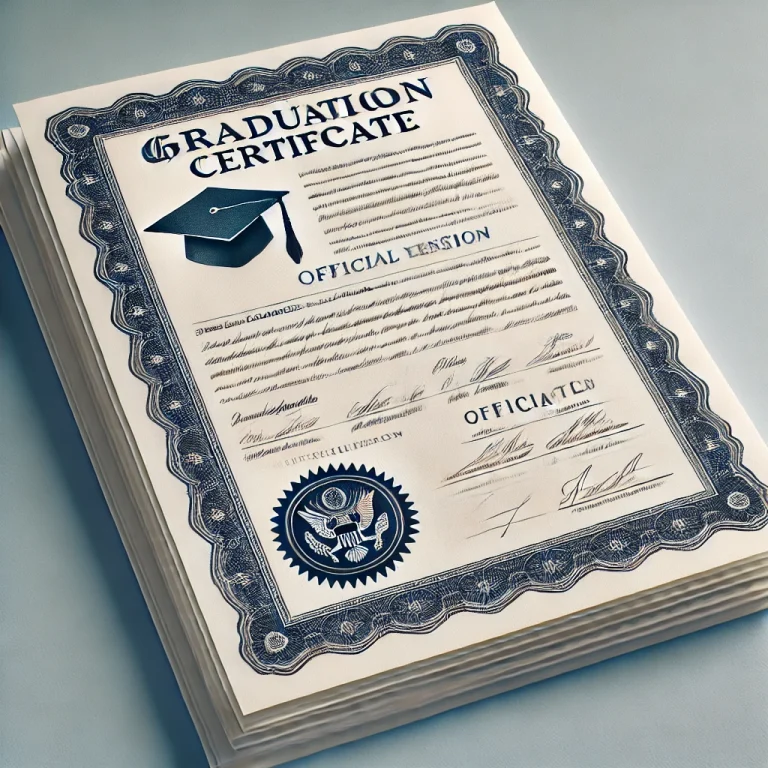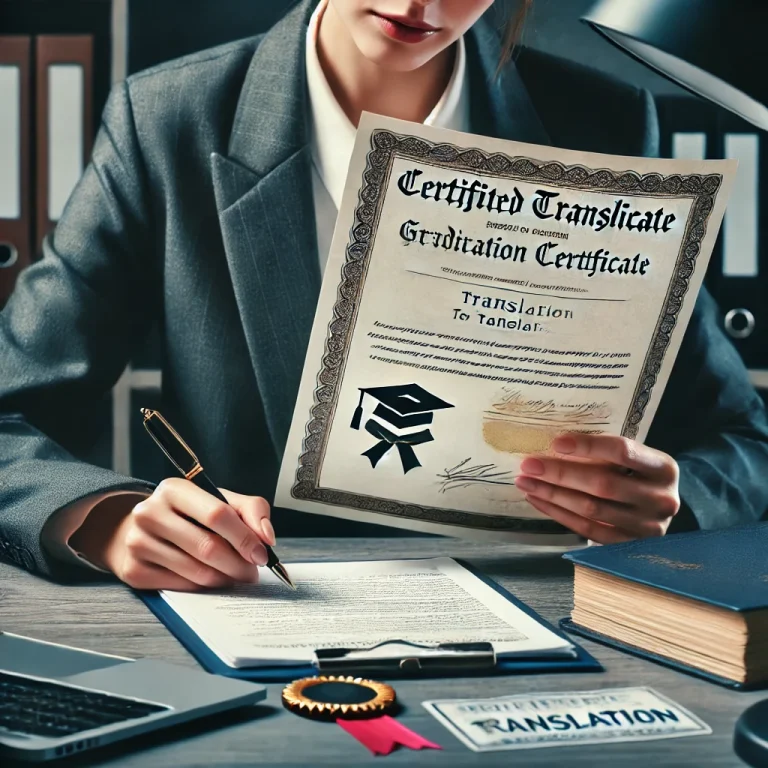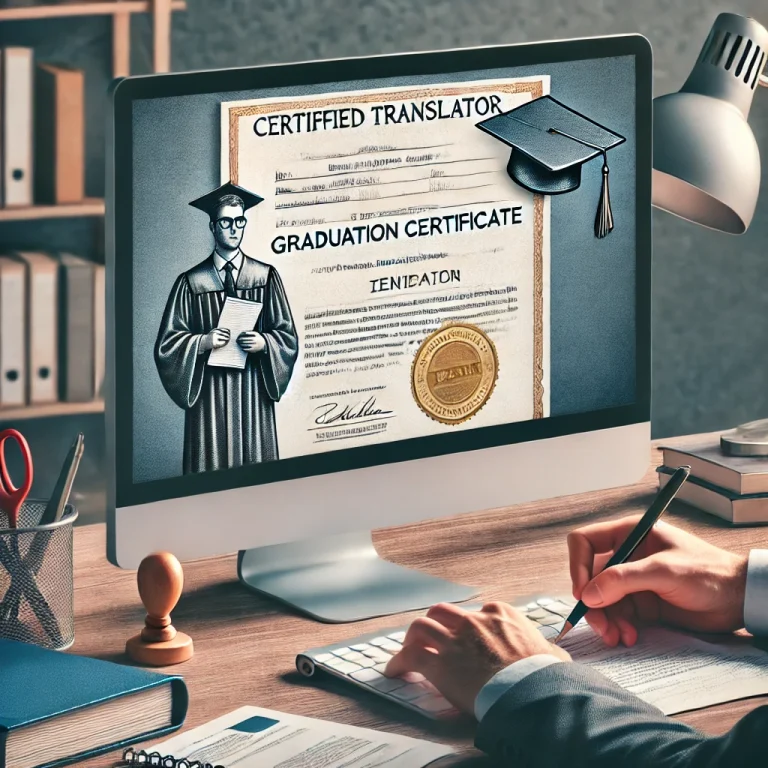Translating a graduation certificate is a crucial step for anyone pursuing academic or professional opportunities abroad. A well-translated certificate ensures that your qualifications are recognized by foreign institutions, whether universities, employers, or immigration authorities. This article will walk you through how to translate a graduation certificate, focusing on the necessary actions and steps to guarantee accuracy, legal compliance, and certification.
The Importance of Translating Graduation Certificates
Translating a graduation certificate is essential for individuals moving between countries for education or work. Accurate translations ensure that foreign academic institutions or employers understand the nature and equivalency of your qualifications.
Who Needs a Graduation Certificate Translation?
Many people need a translation for a graduation certificate, including students applying to foreign universities, professionals seeking employment abroad, and individuals applying for immigration visas. In many cases, academic institutions and government authorities require a certified translation certificate to validate the authenticity and accuracy of the document.
Understanding the Translation Process
Why Accuracy in Degree Translation Matters?
When translating a graduation certificate, precision is paramount. Any errors in the translation of academic degrees, grades, or institution names can lead to misunderstandings, affecting your application or job prospects.
Certified Translation Certificate: What Is It and Why You Need It?
A certified translation certificate is a statement issued by a translator or translation agency, declaring that the translation is accurate and true to the original document. This is often required by universities, employers, or immigration offices to ensure that the translated document reflects the original’s content faithfully.
Steps to Translate a Graduation Certificate
1. Gather Your Original Documents
Before starting the translation, ensure you have the correct, unaltered version of your graduation certificate. This should be an official copy that includes all necessary seals, signatures, and academic information.
2. Choose a Certified Translator or Translation Agency
The next step is to hire a certified translator. Look for translators who specialize in degree translation and can provide official certification of the translation’s accuracy. Make sure that the translator is accredited by a recognized body in your destination country.
3. Understand the Language Requirements for Translation
Different countries have different requirements regarding language. Ensure that the translator is fluent in the target language and familiar with the education system of both the source and destination countries. This will help avoid misinterpretations of academic terminology.
4. Request a Certified Translation Certificate
Once the translation is complete, request a certified translation certificate from the translator. This certificate validates that the document is a true and accurate reflection of the original, providing legal credibility.
5. Proofreading and Quality Check of the Translation
Before submitting your translated certificate, ensure it undergoes thorough proofreading to check for any errors. This step helps maintain the integrity of your document and ensures compliance with the original.
6. Submit the Translation to the Required Authorities
After receiving your certified translation, submit it to the institution or authority that requires it. This could be a university, immigration office, or government agency.

Common Challenges in Degree Translation
Handling Complex Terms in Academic Translations
Academic terminology can vary greatly between languages and education systems. For example, the word “Bachelor” in one language may have multiple meanings in another, making accurate translation vital.
Dealing with Cultural and Legal Differences
Different countries have distinct educational standards and legal requirements for documents. An experienced translator will understand these differences and ensure that the translated document adheres to the required standards.
Tips for Getting an Accurate and Certified Translation
The Role of Certification in the Translation Process
To avoid issues, always opt for a certified translation. Certification provides assurance to the receiving party that the translation is accurate and meets all legal requirements.
Ensuring a Certified Translator Handles Your Document
Always verify that the translator or agency you hire is certified. Accredited translators are familiar with both the language and legal nuances involved in document translation.
How to Verify a Certified Translation Certificate?
Once the translation is complete, you should verify that the certified translation certificate includes the translator’s name, contact information, and certification details, proving that the document has been reviewed and deemed accurate.

When You Need a Certified Translation Certificate for a Graduation Certificate
Situations Requiring a Certified Translation Certificate
If you’re applying to a foreign university or submitting documents to an immigration office, a certified translation will almost always be required. In some cases, even employers may ask for a certified copy of your degree translation to ensure that your qualifications meet local standards.
Submitting Translations to Government or Academic Institutions
When submitting a translated certificate to a government office or academic institution, make sure it follows their specific guidelines. Failure to do so could result in delays or rejection.
Cost of Translating a Graduation Certificate
Factors Influencing Translation Costs
Several factors influence the cost of translating a graduation certificate, including the complexity of the document, language pair, and whether or not a certified translation certificate is needed.
Understanding Pricing Models of Certified Translators
Certified translators often charge by the word or page. The price can increase depending on the technicality of the document and the turnaround time. Learn more about documents translation services.
Conclusion
Translating a graduation certificate is a detailed process that requires precision, professionalism, and certification. Ensuring you choose a certified translator and follow the necessary steps will save time and avoid complications with the institutions you submit your documents to.
FAQs
How long does it take to translate a graduation certificate?
The time required for translation can vary but typically ranges from 2 to 5 business days, depending on the translator’s workload and the complexity of the document.
Can I translate my graduation certificate myself?
No, in most cases, self-translation is not accepted. Academic and governmental institutions require translations done by certified professionals.
What makes a translation "certified"?
A certified translation includes a statement from the translator or translation agency attesting to the accuracy of the translation and includes their credentials.
Where can I find certified translators for degree translation?
Certified translators can be found through professional associations such as ATA (American Translators Association) or through specialized translation agencies.
Is degree translation required for applying to universities abroad?
Yes, most foreign universities require a certified translation of your graduation certificate if it is not in their official language.
What are the legal implications of inaccurate translations?
Submitting an inaccurate or unverified translation can result in your application being rejected and may even lead to legal complications depending on the country.


